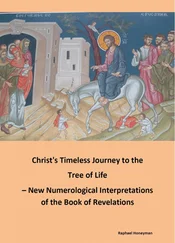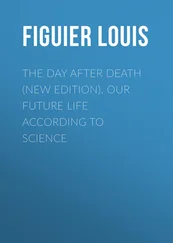This was the state of play when Bevan arrived. What Rudolf Klein has termed a ‘sedimentary consensus’ existed, built up over many years, that a National Health Service would be introduced. It was a consensus, however, marred by a profoundly suspicious body of doctors fearful of state control, plus a collection of other interests none of which were satisfied by what was proposed. ‘By the end of the war,’ Charles Webster, the official historian of the NHS has judged, ‘all the government schemes lay in ruins, while the powerful interest groups were more divided than ever they had been.’ 36
Bevan’s first act was to sink into the well-upholstered chair in his new ministry – and then banish it. ‘This won’t do,’ he declared, ‘it drains all the blood from the head and explains a lot about my predecessors.’ His second was to charm all around him. ‘He sold himself to the Ministry within a fortnight,’ Sir Wilson Jameson, the Chief Medical Officer, told Bevan’s biographer, Michael Foot. Sir William Douglas, according to Foot a natural Conservative who was nearing retirement, was transferred in as Permanent Secretary only to tell a friend a few days after Bevan’s appointment that he thought him ‘a terrible fellow. I’ll never forgive him for all those attacks on Churchill during the war. I made it clear that I would carry on only for three months until they’d got someone else.’ A few months later the same friend asked again what he thought of Bevan. ‘What are you driving at?’ replied Douglas. ‘He’s the best Minister I ever worked for. I’ve made it clear that while Bevan’s there, I’ll stay.’ The same charisma worked initially on the BMA council. ‘We expected to see a vulgar agitator,’ Dr Roland Cockshut, who was to become one of Bevan’s most fierce opponents, said. ‘… However, the first thing I noticed was that the fiend was beautifully dressed. We were quite surprised to discover he spoke English.’ He proved, Cockshut concluded, to have ‘the finest intellect I ever met’. He told the doctors he intended to do the job for five years when no previous health minister had lasted longer than three. 37The meeting ended with an ovation, and only the next day did council members start pinching themselves and asking ‘what the hell were we doing, cheering him yesterday?’ The British Medical Journal warned its readers that the Welsh Aneurin from whom he took his name was ‘both a bard and a warrior’. 38
Bevan’s third act was to draw up the proposals that in March 1946 were to form the National Health Service Bill. Within his first month he reached the fundamental conclusion that Willink’s revised plans for the hospitals would not work. In his own words, he judged that Willink had ‘run away from so many vested interests that in the end he had no scheme at all’. 39His answer to the hospital problem was to take the lot, municipal and voluntary, into public ownership – the idea floated by the house governor of Charing Cross in 1930 and revived in 1939 by MacNalty as ‘revolutionary’ but ‘inevitable’, though it had never formed part of any government or party proposal. Sir John Hawton, the deputy secretary in charge of hospitals who in the 1950s became Permanent Secretary and who was for ever a Bevan fan, told Michael Foot:
At our very first full discussion, Bevan put his finger on the hospital arrangements devised by Willink as the greatest weakness. And, of course, he was right. They would never have worked. I came away that night with instructions to work out a new plan on the new basis he proposed. 40
In this, Bevan made his biggest break with all that had gone before.
Bevan’s other key piece of business in the autumn and winter of 1945 was to strike up a close and, it was to prove, life-saving relationship with the Presidents of the three main Royal Colleges – the surgeons, physicians and obstetricians. Of the three, Sir Alfred (later Lord) Webb-Johnson of the surgeons and Lord Moran of the physicians were to be the pivotal figures. Webb-Johnson came to address Bevan in correspondence as ‘My dear Aneurin’. 41Moran, the former Sir Charles Wilson, was already an almost mythical figure. Distrusted in BMA circles as ‘Corkscrew Charlie’, he was Churchill’s personal doctor and was president of the physicians for a near-record nine years. Politically sinuous, vain, immensely able and determined to spread specialist care across the country, Moran told Michael Foot that he initiated the approach to Bevan because ‘the service was inevitable, so it at once became important, if the doctors were to have any say in things, that Bevan, as Minister for Health, should look upon them as allies and seek their advice’. 42
In practice and theory the Royal Colleges were members of the thirty-strong committee that the BMA had set up to negotiate with Willink. The Royal Colleges’ presidents, however, were careful to keep their own channels of communication with Bevan open, while Bevan, in line with the constitutional position he had long held as a back-bencher, refused to negotiate with the BMA until the Bill was published. That did not prevent him talking to people, and dinners at Prunier’s with Moran along with other meetings shaped crucial parts of the deal that made the NHS. Moran related to Michael Foot a conversation with Bevan:
BEVAN: I find the efficiency of the hospitals varies enormously. How can that be put right?
MORAN: You will only get one standard of excellence when every hospital has a first-rate consultant staff. At present the consultants are all crowded together in the large centres of population. You’ve got to decentralize them.
BEVAN: That’s all very well, but how are you going to get a man to leave his teaching hospital and go into the periphery? [He grinned] You wouldn’t like it if I began to direct labour.
MORAN: Oh, they’ll go if they get an interesting job and if their financial future is secured by a proper salary.
BEVAN (AFTER A LONG PAUSE): Only the State could pay those salaries. This would mean the nationalization of the hospitals. 43
The college presidents also convinced Bevan that he would have to allow part-time consultants to continue private practice in NHS ‘pay beds’. Without that concession there was a real risk that specialists would refuse to join the health service, and would, in Bevan’s words, set up ‘a rash of private nursing homes all over the country’ 44which would undermine the very comprehensiveness of the service Bevan was seeking to establish. In addition, Lord Moran talked Bevan into merit awards, on top of basic salary, for those doctors whom their peers judged worthy. A decade later, Bevan at a private House of Commons dinner was to boast wryly in one of his most famous asides, ‘I stuffed their mouths with gold.’ The remark was not given currency until 1964 by Brian Abel-Smith, when it provided one small element of the growing resentment over private practice that exploded in Barbara Castle’s great pay beds row. 45At Prunier’s, as Professor Abel-Smith has put it:
The top doctors obtained á la suite terms in the Health Service: part-time payment for loosely defined sessions, the secret disposal of Treasury funds to those of their number whom Lord Moran and his two colleagues thought more meritorious, the lion’s share of the endowments of the teaching hospitals to pay the costs of their researches, and the right to private practice – much as before. The consultants had gained regular remuneration without any loss of freedom and were being trusted to use this freedom responsibly. 46
Labour’s left wing, whence Bevan came, proved far from happy with this deal. But, as Michael Foot has put it, ‘to get the specialists into the hospitals and to keep them there as regularly as possible was crucial to the whole enterprise’. 47In the long run, the concessions split the medical profession and put the Royal Colleges, with the powerful voices of Webb-Johnson and Moran, on Bevan’s side. Without that, it is doubtful if the NHS would have been born at all; and the steady spread of consultants across the country, which did so much after 1948 progressively to improve standards of care outside London and the big cities, would not have occurred. The mighty battle which was still to be fought with the BMA, despite some of the ballot results to come, was to be between Bevan and the GPs rather than Bevan and all the doctors.
Читать дальше
![Nicholas Timmins The Five Giants [New Edition]: A Biography of the Welfare State обложка книги](/books/701739/nicholas-timmins-the-five-giants-new-edition-a-cover.webp)











